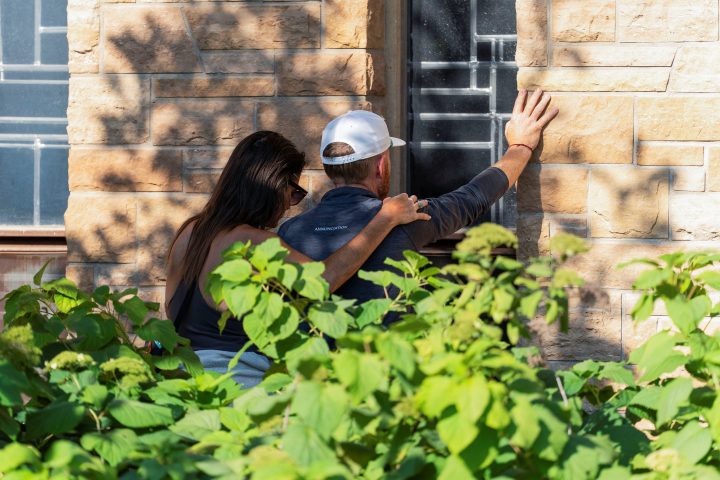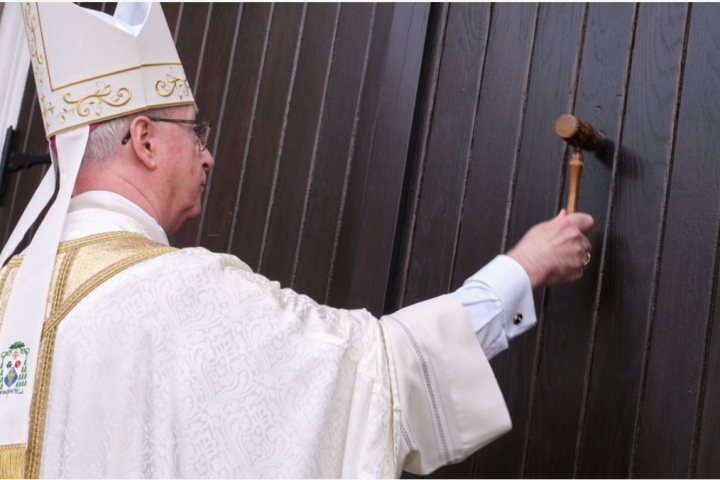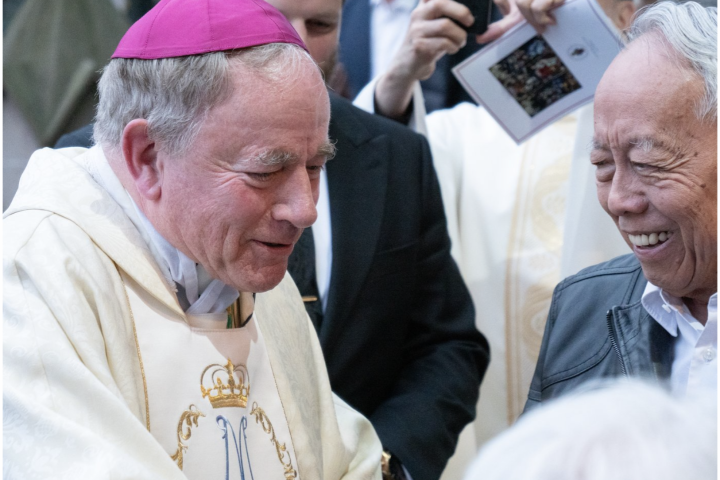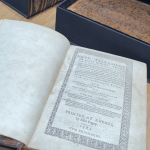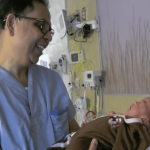Thousands of pro-lifers packed onto Parliament Hill and spilled out onto Wellington Street May 9 for the 27th annual National March for Life.
The crowd gathered on the Hill at noon with its members bearing both homemade and professionally crafted signs pledging to stand fast for the unborn and vulnerable.
The march’s theme “I will never forget you” was taken from the prophet Isaiah’s poignant question: “Can a mother forget the baby at her breast?”
The rally and march were live broadcast by U.S. cable network EWTN.
Speakers included high-profile U.S. pro-life speaker and author Abby Johnson, President of 40 Days for Life Shawn Carney, and Campaign Life Coalition Vice-Chair Jeff Gunnarson.
The opening prayer was led by Father Daniel Szwarc, OMI, who had travelled to Ottawa from the Arctic Circle, together with three young women engaged in pro-life activities in their small Inuit village of Naujaat.
Diana Kringayark told the crowd that every week she and the other women buy baby products to distribute to 40 village families to show that “every baby is important.”
Ottawa Archbishop Marcel Damphousse encouraged the marchers to act with “courage, compassion, and conviction.”
Conservative MPs Cathay Wagantall and Arnold Viersen were the only federal politicians to address the crowd. In her brief speech, Wagantall emphasized that advocating for the unborn and the vulnerable is particularly difficult for Canadian politicians. But she hailed the number of young people in the crowd as a sign of hope.
“If you think it is a battle out here, you know it is a battle in there,” the Saskatchewan MP said, indicating the Houses of Parliament behind her.
Angelina Steenstra, of the Silent No More Awareness Campaign, introduced Nathalia Comrie, a young woman who at 17 became pregnant and felt that “abortion was the only choice my family would accept.” She says she was told that “everything would go back to normal after the abortion.”
“That was a lie,” Comrie said. After years of depression and substance abuse, she was introduced to the Sisters of Life, and through them to other women who, like her, had suffered as the result of abortion.
“I will never forget my son Kaeden. He is why I am silent no more,” Comrie said.
In the crowd of clergy, habited religious sisters, elderly, school children, and loud teenagers were women who had found themselves, like Comrie, in situations where they felt pressured and alone.
Christa Ranson came to the March for Life from Montreal because she knew what it was to have considered abortion.
Ranson had been scheduled to undergo an abortion on two separate occasions. The first time she was actually on the table being prepped for the abortion when she decided not to go through with it. The second time, after hearing her son’s heartbeat by ultrasound, Comrie decided she “just couldn’t do it.”
Ranson says she now tells her son, “I loved you when you were just a heartbeat.”
When asked why it was important for her to come to the March for Life, she told The Catholic Register that it was to let women know there is a choice other than abortion.
“What a lot of people don’t realize is that, when you are on that table, those babies are living, they have a heart, they have feelings.”
“I want other women to know that even if it is difficult, it will be okay and it is worth it. If women are making the decision because of health reasons, or financial reasons, they should reach out. There are resources out there, there are doctors out there who will help.”

Later in the day, over 700 people gathered at the Ottawa Conference Centre for the Rose Dinner Gala. Both the National March for Life and the Rose Dinner are organized and sponsored by Campaign Life Coalition.
CLC Vice-Chair Gunnarson announced at the outset that the 27th March for Life had been dedicated to “pro-life stalwarts” Angelina and Walter Steenstra.
With the encouragement of both her husband and the late Father Vince Heffernan, Steenstra is responsible for bringing the Silent No More Awareness Campaign to Canada.
While diners enjoyed their meal, key-note speakers Johnson and Carney were interviewed in a relaxed, armchair-style setting by CLC Atlantic Region Coordinator Ruth Robert.
When asked about the situation in the U.S. since the 2022 Supreme Court decision to overturn Roe v. Wade, the constitutional right to abortion, both Johnson and Carney warned the Canadian crowd not to “put all your faith in law.”
“Don’t believe the law is going to be your saviour. Don’t believe a politician is going to save you,” said Johnson.
Despite the stark reminder that the legal environment cannot change hearts and minds, Carney was encouraging.
“Don’t give up. Ignore the noise. Go to work where you can and trust God.”
Marches took place in provincial capitals across the country including Quebec City, Regina, and Edmonton.
At a pro-life Mass before the March for Life in Victoria, Vancouver Archbishop J. Michael Miller prayed that those heading to the British Columbia legislature “may be worthy and effective messengers of hope to a world where self-centreedness, greed, violence, and cynicism so often seem to choke the fragile growth of grace in people’s hearts.”
The acceptance of abortion in particular in the law and the popular mind is “a telling sign of an extremely dangerous crisis of the moral sense, which is becoming more and more incapable of distinguishing between good and evil,” the Archbishop said.
He told the pro-life worshippers that they are “praying in a special way that reverence for life will grow and increasingly be realized in concrete ways in our province of British Columbia and in our nation of Canada.”

Speakers at the legislature told the crowd of about 1,000 people that they need to remember the causes behind society’s choices of accepting death through abortion and euthanasia.
Victoria Bishop Gary Gordon told the crowd that fear lies behind those who choose abortion and euthanasia. “Everybody loves life,” Bishop Gordon said, but fear of an unplanned pregnancy or being abandoned leads them toward what they see as the solution to their fear.
“If we listen to people who choose things we don’t agree with, listen deeply, you will hear the fear. And we have the ability to dispel the fear, with love.”


Amanda Achtman, whose mission to end euthanasia in Canada led to her online project Dying to Meet You, reminded the crowd that people who choose euthanasia typically fear “the loss of ability to participate in meaningful life activities.” Doctors who perform euthanasia “think that they are doing something good, she said.
“The dying person deserves not to be abandoned as they’re suffering and dying. When someone requests euthanasia, it betrays that insecurity.”
Alex Schadenberg of the Euthanasia Prevention Coalition said, “We have a feeling of hopelessness among many people … We have a serious problem with loneliness and feelings of lack of hope and meaning so what we really have is a cultural abandonment going on. This is not about freedom and choice and autonomy, it’s about killing people who are in despair. And those people need you as people of hope.”
In Edmonton, Archbishop Richard Smith said “Much of society has chosen to eclipse from its consciousness the truth of God and the demands of his love. Our collective conscience has grown dormant, leaving personal willfulness as the only justification for action.”
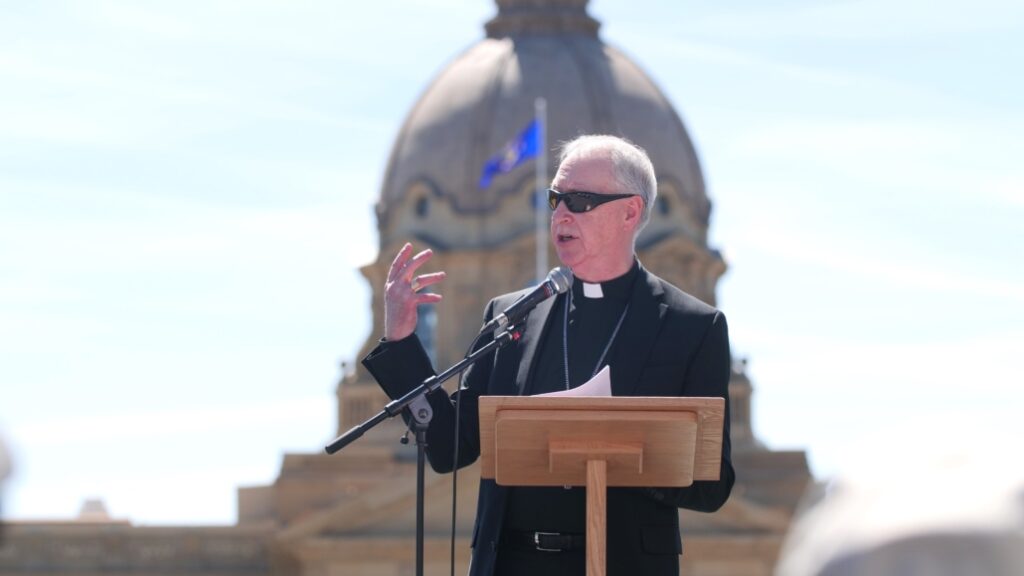
The result is “the total absence of legal protection for the unborn and the astoundingly rapid expansion of access to euthanasia,” he said. “We see, too, that the family is increasingly marginalized in public opinion and political consideration, even as it suffers grievously from the drug culture, pornography, gender confusion, financial strain, infidelities, and domestic violence.”
At the same time, “God’s plans simply cannot be thwarted,” Archbishop Smith said. “This is why we must be filled with confidence, in spite of the difficulties and rejection that confront us whenever we give witness to the Gospel of life.”
He told the crowd that “God’s fidelity and power are the basis of our hope and joy even as we grieve at the world around us,” reminding them to “turn all over to God and call upon his grace, remembering that “we do our most effective ‘work’ on our knees, offering prayers to the Father through the Son, whose intercession is always heard.”
With B.C. Catholic files


